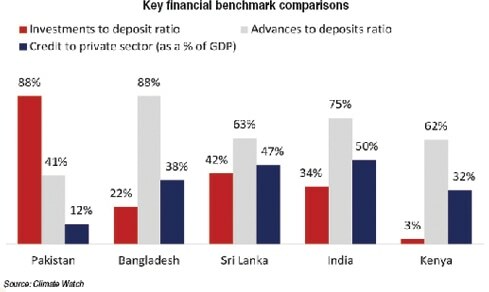 ORGANIC matter is the most important component of the soil which acts as a therapy for improving the soil health. Addition of organic matter to soil leads to a complex chain of multiple benefits. Adding organic mulch to soil surface encourages earthworm activity leading to formation of burrows and other bio-pores, which in turn increases infiltration of water and decreases its loss as runoff--- a result that finally leads to less pollution of streams and lakes.
ORGANIC matter is the most important component of the soil which acts as a therapy for improving the soil health. Addition of organic matter to soil leads to a complex chain of multiple benefits. Adding organic mulch to soil surface encourages earthworm activity leading to formation of burrows and other bio-pores, which in turn increases infiltration of water and decreases its loss as runoff--- a result that finally leads to less pollution of streams and lakes.
In most of agricultural soil organic matter content is decreasing at an alarming rate which is catgorised as poor soil. Soil having 1.29 per cent carbon is considered to be sufficient in organic matter, but the range of carbon in most of country soil is between 0.52 to 1.38 per cent. In most cases, the soil have less than one per cent of carbon.
The low quantity of organic matter in the soil is either natural or man-created. Among natural reasons, the main is the climatic conditions in which the mean annual temperature influences the processes of decomposition of organic matter. High temperature conditions are conducive to a rapid decomposition and loss of organic matter. The largest soil orders in the country are Aridisol and Entisol having lowest organic matter content among all soil orders. Therefore this soil has lesser capacity to hold higher organic matter content.
Another major reason contributing to low organic contents in soil are farmer’s economic condition who can not apply the required quantity of organic wastes back to soils. Almost no crop residues are left in the soil after harvest. The straw and other crop residues are used as fodder for farm animals and animal dung is used as fuel. About 50 per cent of animal droppings are not collected, about half of the collected is burnt as fuel and only one fourth is available for field application. Green manuring is not adopted by our farmers because it does not give short-term economic returns.
Another factor for lower organic matter content of the soil is the intensive tillage. Tillage aerates the soil and breaks up organic residues, making them accessible to microbial decomposition, thereby reducing the organic matter content of the soil. Excessive ploughing has also played a negative role in the organic matter losses.
Among other reasons, the main is the poor management. Most of the farmers do not know how to apply organic matter properly and thus make the soil deficient. A large quantity of organic material is also lost during its transportation to the field. Moreover the organic material applied to the field is not completely decomposed which does not play any significant role in enriching the soil and increasing crop yield.
Farmyard manure, poultry manure, crop residues, green manure, filter cake and silage, slaughter house waste and other solid and liquid based materials (sewage and sludge, fishpond effluent, city refuse and some waste of food processing industries), compost, biogas compost etc. are the important organic sources to increase soil fertility.
Among strategies to improve organic contents of the soil, integrated plant nutrient management system is the most important. Organic sources, in addition to providing nutrients to the soil, improve its physical health. Crops require an instant flow of nutrients at special growth stages to ensure higher yield, which cannot be supplied by natural weathering of minerals and organic materials. Biological sources have their own limitations of being crop specific.
Fertilisers, which have all the nutrients available, can provide sufficient nutrient to the crops, but their cost and constraints frequently deter farmers from using them in recommended quantities and balanced proportions. The limitations may be overcome by using judicious combination of the two, which in the long-run is not only complementary but also beneficial.
Cultivation of Sesbania as green manure crop in normal as well as in marginally salt-affected soil is being practiced by some farmers and its worth has been proved in many studies. Among crop residues the practice of ploughing of cotton sticks is picking up among farmers. The Pakistan Agriculture Research Council (Parc), the National Institute of Biotechnology and the Genetic Engineering (NIBGE) and provincial agricultural research institutes are carrying out work on biological fertilisation.
The Pakistan Agriculture Research Council in collaboration with a local fertiliser factory is producing bio-fertilisers. A composting system for recycling of organic wastes into valuable products that not only improves the growth and yield of crops but also provides a big source of nutrients in the form of organic matter for agriculture soils has been developed at the Institute of Soil and Environmental Sciences, University of Agriculture, Faisalabad. Provincial research institutes are also providing inoculums to the farmers for leguminous and non-leguminous crops.
Much of work is going on for improving organic matter content of the soil and agricultural scientists are trying to develop strategies easy to handle, environmentally safe and economical for the farmers, for improving fertility of the soil.











































Dear visitor, the comments section is undergoing an overhaul and will return soon.